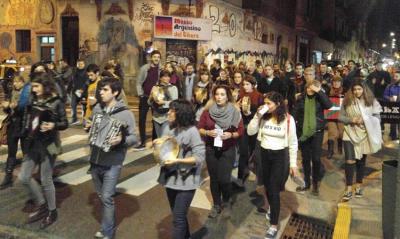Buenos Aires, Argentina. Great weather accompanied the sixth edition of the Triki-Poteo organized by Euskaltzaleak last Saturday. There was already a crowd gathered when it was time to start touring the streets of San Telmo after the first drink at the clubhouse. More than 100 people paraded behind the trikis, panderos and albokas, but not only that, the club told EuskalKultura.com that last weekend’s event was one of the most successful ever with the most musicians. These included pandero players form the percussion workshops at Euskaltzaleak, and trikitixas by Ioar Oteiza, Dani Oiarbide and Ignacio Baña, along with albokas played by Iñaki Esquirotz, Mauro Telletxea and Joaquín Baña.
In each one of the stops, besides having the corresponding drink, participants filled the streets with fandangos, arin-arins, polkas, and some jauzi dances. Dantzaris didn’t just include the locals but also those from other clubs, including some living in the area not affiliated with any club, but who enjoyed the event that is typical from Euskal Herria. In the words of Teresa de Zavaleta, Euskaltzaleak’s president, “The Triki-Poteo attracts a lot of young people, above all the European Basques that are studying or working here. Many come and thank us and tell us that they have felt ‘at home.’ They are also joined by guests, or friends of theirs….It often also happens that while we are on San Telmo Street other Basques appear after hearing the sound of the triki and pandero, people who are surprised by what they see. They always join us for a drink and often follow the parade and end sharing dinner with us at the club. We have a lot of fun,” she said.
Since it is an event aimed especially at youth, the Euskaltegi explains that the organization was passed to the dantzaris. “Nevertheless, the work of all of us is instrumental, especially that of the cooks. Right now we have a strong group of cooks that are the mainstay of our gastronomic activities. Our thanks goes to out to them: Dolores Guerrico, Sylvia Saenz, Ricardo Spalatto, Virginia Goicochea and María Itziar Martínez Esain. On Saturday they delighted us at the beginning and enda of Triki-Poteo with their typical pintxos and sandwiches,” she said.
Given the repercussion of this activity, the Euskaltegi has strengthened its music and choral workshops that practice on Wednesdays from 8:00-8:30pm and pander classes on Saturdays from 1-2pm and Tuesdays from 5-6pm, in addition to the trikitixa classes on Saturdays from 2-3pm, followed by alboka. “Of course, Euskera classes continue to be our priority. This year we have 90 students attending face to face classes, divided into 12 groups and more than 60 students online. In July we will open another first year group that will reach people who would like to begin learning,” Zavaleta said.
Farewell and thanks
“From Euskaltzaleak we would like to especially thank Dani Oiarbide and Ioar Oteiza for working with us since their arrival to Argentina, especially in carrying out the Triki-Poteos. They contributed with their music and experience, and above all their good vibes. Our last Triki-Poteo was almost an excuse to see them and to wish them well before their return to Euskal Herria. We would also like to thank those who attended from Cañuelas, and Gral. Las Heras, who are studying Online, as well as those from Arrecifes, and San Nicolas, as well as the dancers from the Buenos Aires Navarrese Center and Laurak Bat, and the musicians from Laurak, Iñaki and Joaquín Baña, for having accompanied us again, Eskerrik Asko.”
Euskaltzaleak on Facebook: Euskaltzaleak Baires
Euskaltzaleak musicians on Facebook: Musikariak




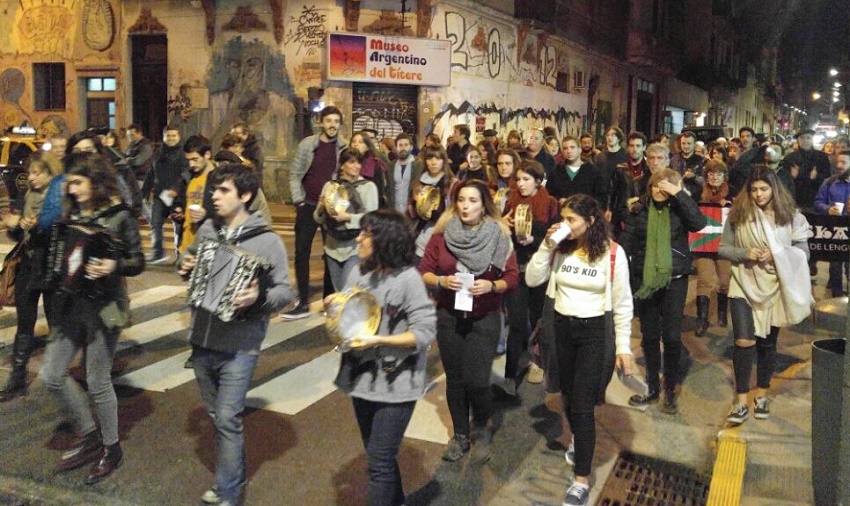



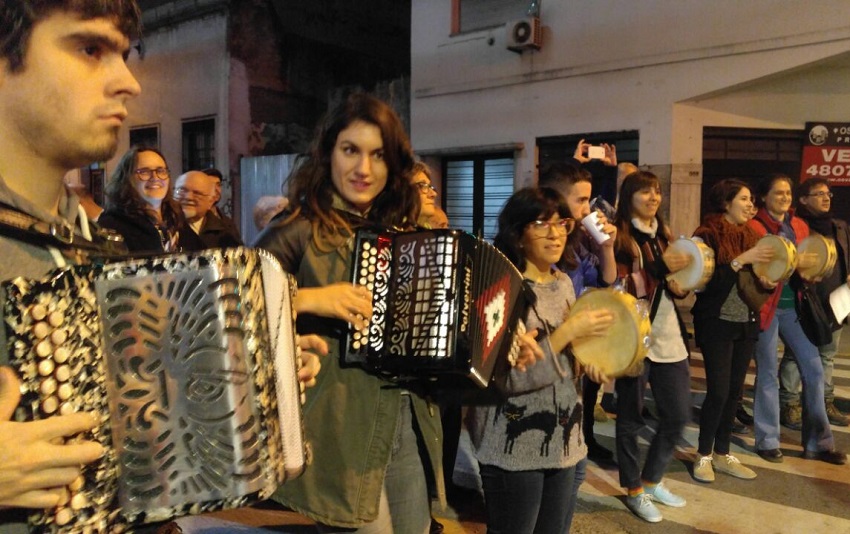
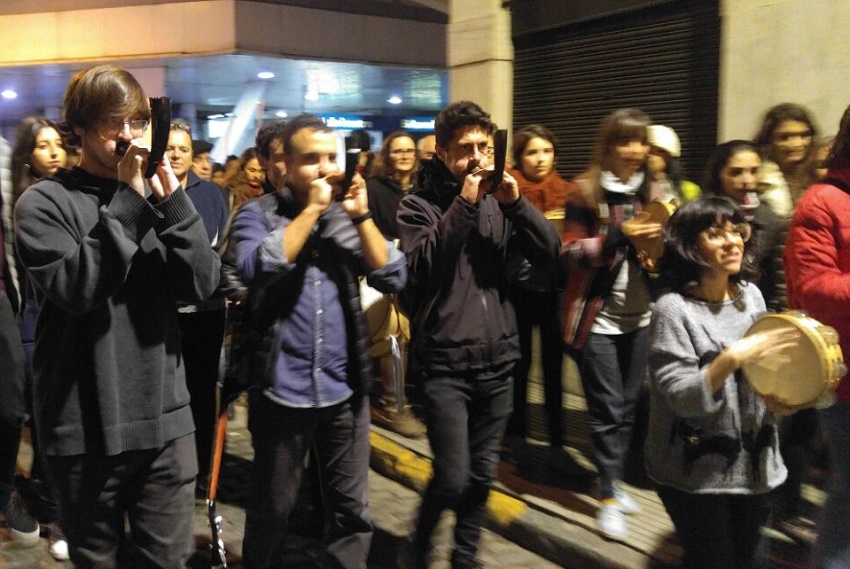
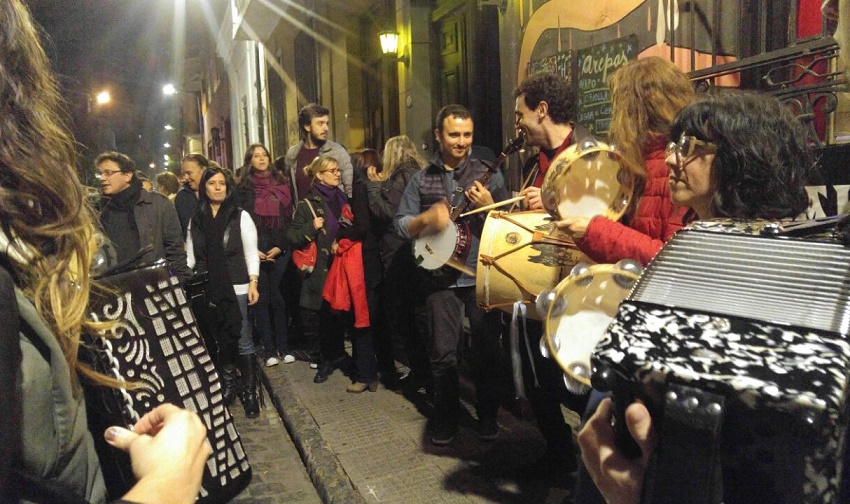
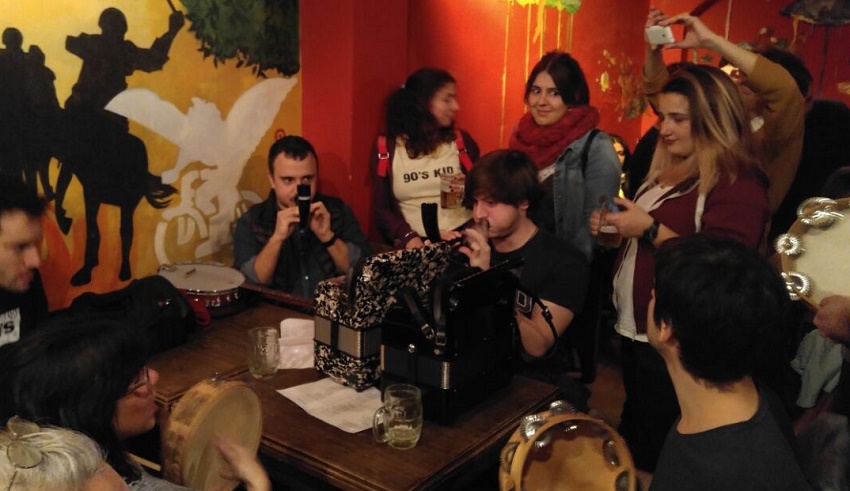
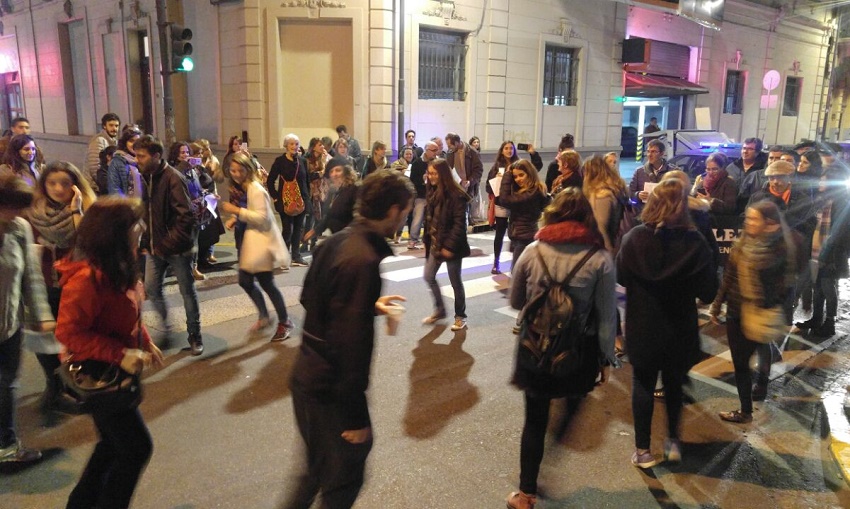
 Send to a friend
Send to a friend Add comment
Add comment

